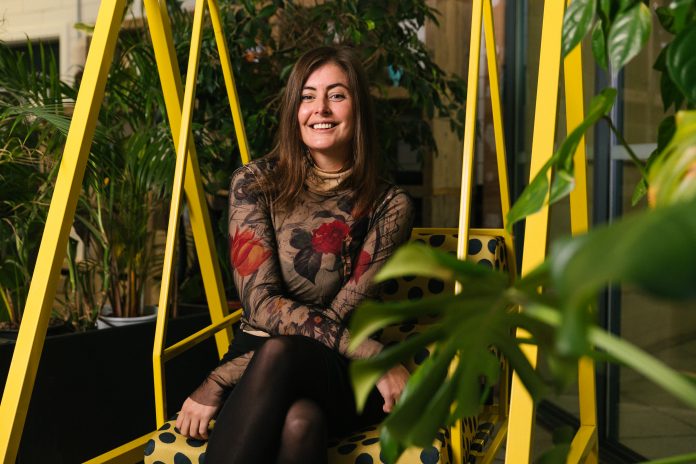I’m part of the Creative Buying team at Lush Cosmetics. As a team, we are responsible for sourcing all the ingredients, packaging and materials used to make Lush products, as well as indirect goods like the materials used in our shop fits, displays etc. We make sure that they are compliant with our non-animal testing (we don’t buy from suppliers that conduct or commission animal tests) and our buying policies.
We find creative solutions to complex problems, constantly looking to evolve to develop to meet our vision of environmental and social regeneration.
My career with Lush
I have looked after multiple remits over the years, including raw materials and product packaging. Now, I coordinate our Global Buying teams, supporting the local teams and making sure we’re aligned in our strategies and approaches.
I also manage our African Sourcing Hub, developing partnerships and projects for Lush in a way that creates food security, incorporates regenerative agricultural practices, protects and enhances biodiversity and creates localised value.
I get to work with various other teams internally and externally, including our tech team on ethical hardware. I’m always looking to identify new sources and growers we can work with and exciting new technologies.
How I got to where I am today
I started at Lush as a sales assistant, thinking it would only be a summer job before I went traveling. Working on the shop floor was an amazing experience; it allowed me to really understand our products and interact with our customers.
I went on to manage the Covent Garden store, which at the time had the highest turnover of all the Lush stores. Whilst doing this, I also studied Anthropology (I’ve always been fascinated by people and cultures).
After working in retail, I worked with one of the founders, Mark Constantine, on his list of projects and senior management support. In 2007, I started managing our charitable giving when we launched the Charity Pot hand and body lotion.
Next, I moved into a support role for retail, helping run the UK retail business. In 2011, I joined the buying team where I helped look after our product packaging and a number of key raw materials, alongside helping set up the Sustainable Lush Fund. This is focused on kickstarting projects to showcase regenerative agriculture, creating demonstration sites to show different ways of restoring nature and generating income based on the principles of People Care, Earth Care and Fair Share.
I started managing the Raw Materials and Safe Synthetics & Product Packaging teams and then moved into coordinating our Global Teams and managing our African Sourcing Hub.
Easy changes people can make to be more sustainable
I think the biggest changes we can make are related to how we choose to consume, buying only what we need and will really use, and thinking carefully about the companies we choose to give our money to.
I look to avoid packaging where I can. Switching from liquid shampoos and soaps to solid versions that don’t require plastic packaging, or any packaging at all, is an easy change to make. If you can’t find an unpackaged alternative, look to buy goods that are already in recycled or reusable packaging and use packaging that can be returned (like our Bring It Back scheme), repurposed or refilled.
Other ways we can be more sustainable include:
- Repairing goods where possible rather than replacing (from clothing to electronics) and buying second hand.
- Changing to a diet that is more plant-based and increasing the amount of locally grown produce; if you can grow some of your own herbs and veg (in the garden or in containers) even better!
- Cycling or walking for short trips and using public transport where feasible for longer journeys.
- Switching to renewable energy.
Ultimately, I look to buy from companies that are committed to sustainability, and I think the more questions we ask of companies, to let them know that sustainability matters when we make our shopping decisions, the better.
